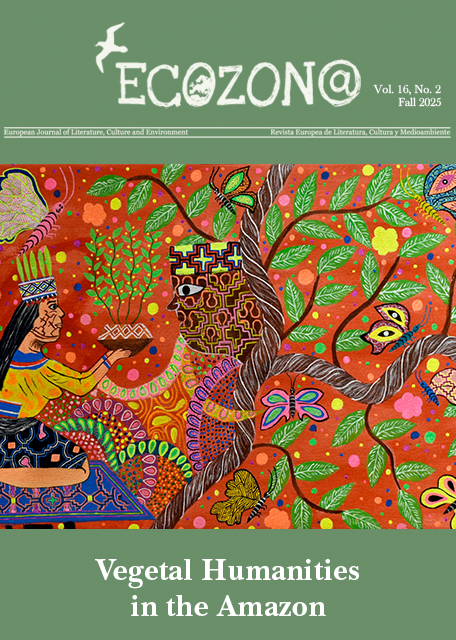<b>The Earth as Pinprick: Some Early Western Challenges to Anthropocentrism</b> // La Tierra como punta de alfiler: Algunos desafíos tempranos al antropocentrismo en occidente
DOI:
https://doi.org/10.37536/ECOZONA.2016.7.1.987Schlagworte:
Ancient Greek and Roman, science, ethics //Antigua Grecia y Roma, ciencia, éticaAbstract
It is common to assume that the ancient Greeks and Romans were essentially anthropocentric in point of view. While this is partly true (as it is today), the ancients established important precedents that challenge and overturn this view, anticipating modern science and even Darwin and beyond. This article analyzes texts from the Presocratics to late antiquity to show how the questioning of anthropocentrism developed over roughly 800 years. This matters because overcoming our present ecological crises demands that we reassess our place on the earth and draw down our impact on the planet. The ancients show that the questioning of anthropocentrism it nothing new; their work is part of the bridge required to help us move more responsibly into the later parts of the twenty-first century and beyond.
Resumen
Es común asumir que los griegos y romanos antiguos tenían un punto de vista esencialmente antropocéntrico. Aunque esto es cierto en parte (como hoy en día), los antiguos establecieron precedentes importantes que desafían y dan la vuelta a esta perspectiva, anticipándose a la ciencia moderna e incluso a Darwin y más allá. Este artículo analiza textos desde los Presocráticos hasta la antigüedad tardía para mostrar cómo se cuestionó el antropocentrismo durante aproximadamente 800 años. Esto es importante porque para vencer las crisis ecológicas actuales es necesario que re-evaluemos nuestro lugar en la tierra y que reduzcamos nuestro impacto en el planeta. Los antiguos demuestran que cuestionarse el antropocentrismo no es nada nuevo; su trabajo es parte del puente necesario para ayudarnos a trasladarnos más responsablemente hacia el último periodo del siglo XXI y más allá.
Downloads
Downloads
Veröffentlicht
Ausgabe
Rubrik
Lizenz
Authors who publish with this journal agree to the following terms:
a) Authors retain copyright and grant the journal right of first publication with the work simultaneously licensed under a Creative Commons Attribution License that allows others to share the work with an acknowledgement of the work's authorship and initial publication in this journal (CC BY-NC for articles and CC BY-NC-ND for creative work, unless author requests otherwise.
b) Authors are able to enter into separate, additional contractual arrangements for the non-exclusive distribution of the journal's published version of the work (e.g., post it to an institutional repository or publish it in a book), with an acknowledgement of its initial publication in this journal.
c) Authors are permitted and encouraged to post their work online (e.g., in institutional repositories or on their website) prior to and during the submission process, as it can lead to productive exchanges, as well as earlier and greater citation of published work (See The Effect of Open Access).










